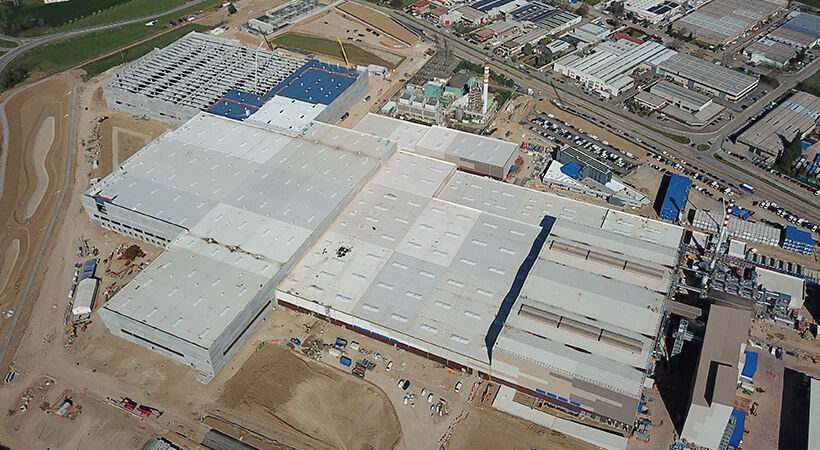Glass manufacturer Vetropack has begun the process of heating up the two melting furnaces at its new Boffalora sopra Ticino plant in Italy.
After a construction period of one and a half years, the furnaces are now ready to begin the heat up process.
The furnaces will be gradually brought up to temperature and filled over the course of several days in preparation for the start of production.
Upon its official inauguration in October 2023, Vetropack’s new modernised plant will produce up to 70% more glass than the previous plant, while maintaining maximum flexibility and sustainability.
Vetropack has invested more than CHF 400 million in the new production site, to stay ahead of rising demand in the Italian market and meet increased quality requirements.
Johann Reiter, CEO of the Vetropack Group, said: "The Italian market, with its many global brands, plays a major role in our strategy.
"With the start of the commissioning phase, we have reached an important milestone in Italy. Even though there are still a few steps to go before production starts – we are approaching the finish line."
With the new site opening in Boffalora sopra Ticino, the previous plant in Trezzano sul Naviglio will be closed down. The Boffalora sopra Ticino plant will remain as the sole Vetropack site in Italy.
However, the 301 employees will not have to fear for their jobs, as all staff members of the previous site have been offered a transfer.
Heat-up
On May 22nd, the first furnace was fired up, and the second furnace will follow a few weeks later.
Initially, external burners are firing the furnaces. This process takes a total of 14 days.
Christoph Burgermeister, Project Manager at Vetropack, said: "The furnaces must be heated up from room temperature to 1550°C in a precise and controlled manner. We follow a previously calculated heating curve to prevent the furnaces from suffering any damage."

"In addition, the refractory material expands as a result of the heating, so we have to continuously adjust the pressure pins in the steel structure during this step of the process."
Filling will also begin with waste glass cullet, which not only saves valuable resources but can also be melted down with less energy input than raw material.
Sustainable production
The smart technologies in which Vetropack is investing for the Boffalora brownfield project will enable greater production flexibility, for example for so-called semi-specials – containers that differ from the norm, in smaller batches.
In addition, the site is geared towards a more resource-efficient and sustainable production, with the water used for production and exhaust heat from the melting furnaces recycled as far as possible through recirculation systems, and emissions greatly reduced through the latest filter systems.
The filtration system at Boffalora sopra Ticino (see left) keeps up with the size of the production facilities and is expected to noticeably reduce dust and nitrogen oxide emissions.





